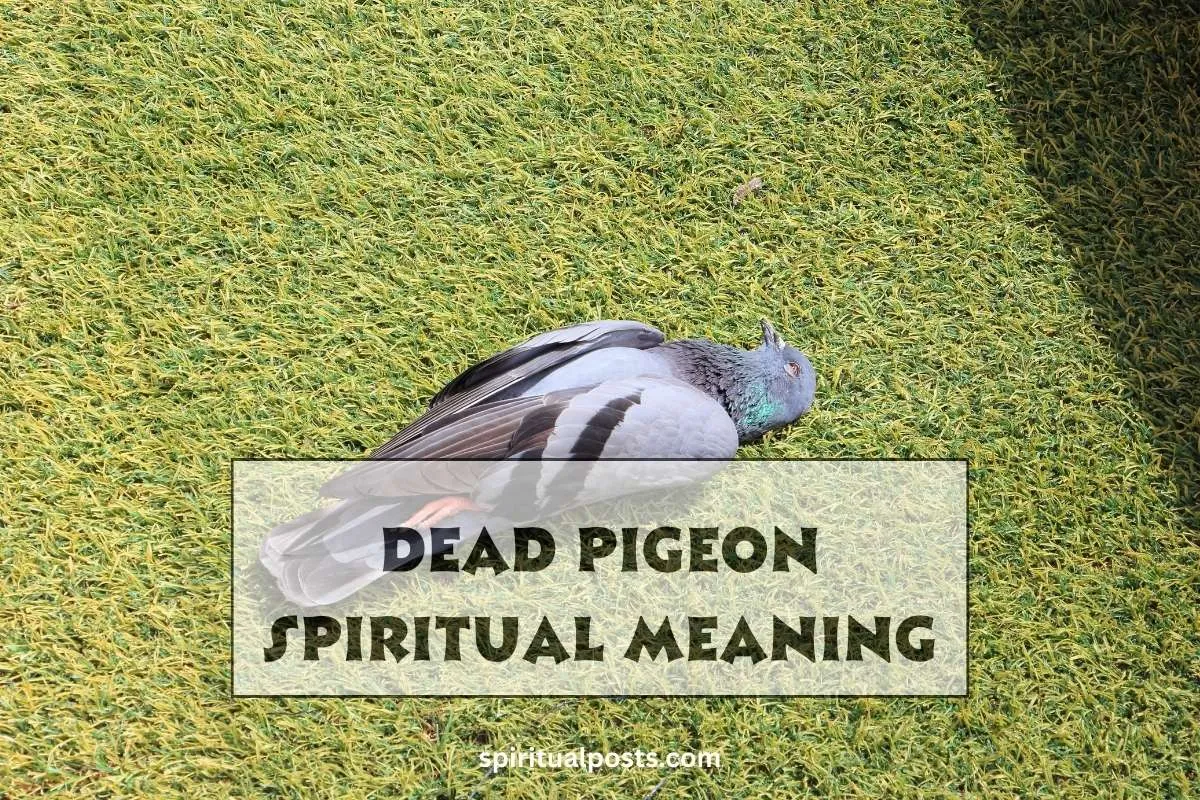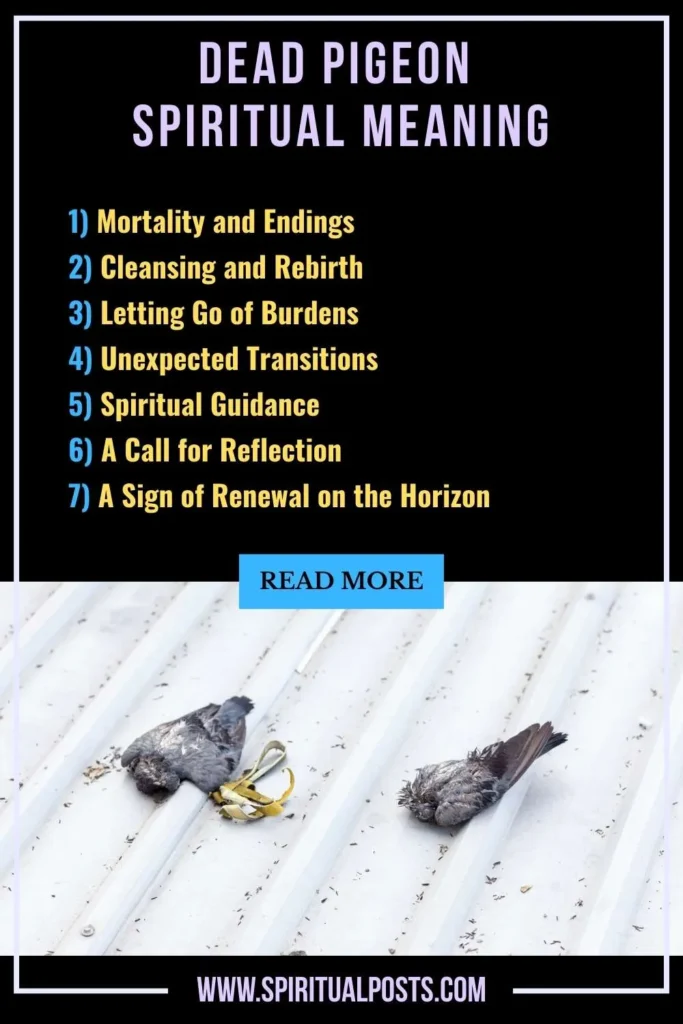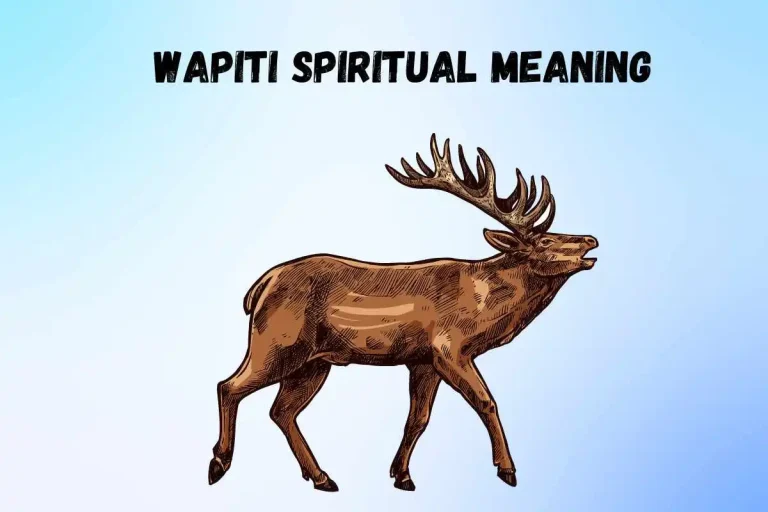Dead Pigeon Spiritual Meanings and Symbolism

Have You Ever Stumbled Upon a Lifeless Pigeon?
Seeing a dead pigeon can stir up strong emotions, making you pause and think. While it might seem like an ordinary event, many cultures believe it carries deep spiritual meaning, signaling change or reflection.
This small moment can open doors to personal growth, helping you understand life’s temporary nature. It might even push you to let go of things holding you back and see the world differently.
Key Takeaways
- The dead pigeon symbolizes the cycle of life and death, inviting reflection on the transitory nature of earthly existence and the need for spiritual rebirth.
- The lifeless form of the pigeon represents an opportunity to release attachments, let go of burdens, and create space for personal transformation and growth.
- Across cultures, the dead pigeon is often seen as a messenger from the spiritual realm, providing guidance and prompting deeper introspection on one’s life purpose.
- The unexpected transition represented by the dead pigeon challenges individuals to embrace change with adaptability and trust, leading to greater self-understanding and authentic living.
Introduction to Dead Pigeon
Spotting a dead pigeon can make you feel curious, sad, or even uneasy. These birds are so common in cities that we often ignore them—until their sudden death makes us stop and wonder.
Pigeons symbolize resilience and adaptability, thriving even in busy urban spaces. When one dies, it reminds us that life is fragile and that everything moves in cycles.
Exploring what a dead pigeon represents can teach us about mortality, change, and life’s mysteries. It’s not just about the bird—it’s about what its passing means for us.
What Does It Mean When You See a Dead Pigeon?
A dead pigeon can make you think about how short life really is. Its stillness contrasts with its once lively presence, showing how quickly things can change.
In many traditions, pigeons stand for peace, purity, and the soul. Finding one dead might be a nudge to live more mindfully, appreciating each day as a gift.
It could also mean it’s time to release old habits or beliefs. The pigeon’s death reminds us that endings are natural, making space for new beginnings.
Dead Pigeon Symbolism
A dead pigeon isn’t just a sad sight—it can carry powerful messages. Since pigeons often symbolize harmony, their death might signal a time for deep reflection.
| Symbolic Meaning | Interpretation |
|---|---|
| Letting Go | Time to release what no longer helps you grow. |
| Mourning & Grief | A reminder of loss and life’s impermanence. |
| Spiritual Awakening | Encourages looking inward for deeper wisdom. |
| Unexpected Endings | Life can change suddenly—stay adaptable. |
| Transformation | Signals personal growth and shedding the old. |
This table breaks down the key lessons a dead pigeon might bring into your life. Each meaning invites you to pause, reflect, and grow.
7 Spiritual Meanings of Dead Pigeon

When a dead pigeon appears, it can symbolize mortality and endings, signaling the need to let go of burdens and embrace cleansing and rebirth.
The unexpected transition may also offer spiritual guidance, prompting you to reflect on your own life journey and the cycles of growth and change.
As you contemplate the deeper meanings of this encounter, you may find yourself on a path of self-discovery and spiritual renewal.
1. Mortality and Endings
Seeing a dead pigeon can be a sharp reminder that life doesn’t last forever. Even the most ordinary creatures, like pigeons we see every day, eventually face death. This moment might make you pause and think deeply about your own life and how time is always moving forward.
In spiritual terms, the pigeon’s stillness shows the end of something important—not just physically, but emotionally or spiritually. It could mean the close of a chapter, a project, or a relationship. The message isn’t meant to scare you, but to encourage you to reflect and grow.
When a creature known for movement and flight lies motionless, it shows how change is a natural part of life. Nothing stays the same forever, and that includes people, experiences, and even emotions.
This moment may push you to ask deeper questions. What have you been holding onto that needs to end? How are you using your time?
Even though it’s sad or strange to see, the dead pigeon is like a mirror, showing you that letting go is a part of being alive. It’s not the end—it’s a step toward something else.
2. Cleansing and Rebirth
While death might seem dark, it can also be a symbol of starting fresh. When something ends, it makes room for something new. The lifeless pigeon can be seen as a signal that a part of your life is ready to be cleaned out.
This could mean letting go of old habits, thoughts, or behaviors that no longer help you. Things that used to feel right may now be holding you back. Letting them go can bring peace and growth.
Spiritually, the pigeon is connected to messages from beyond, and its death might mean you’re stepping into a new phase. The old version of you may be fading, and a clearer, wiser self could be on the rise.
This change won’t always feel easy, but it can be powerful. You might feel lighter, calmer, or more focused after releasing what’s been dragging you down.
In the end, the death of the pigeon might mark a kind of spiritual reset—an open door for healing and renewal.
3. Letting Go of Burdens
A dead pigeon can also be a clear sign that it’s time to drop the weight you’ve been carrying. Whether it’s stress, guilt, or fear, these heavy emotions might be slowing you down.
Sometimes we hold onto things longer than we should. The sight of the pigeon could be a wake-up call, reminding you that you don’t have to keep struggling with things that no longer help you grow.
Letting go doesn’t mean forgetting or giving up. It means you’re making space for better energy, clearer thoughts, and a stronger sense of who you are.
You might feel nervous about releasing what’s familiar—even if it hurts. But the spiritual message here is about freeing yourself.
Once you let go, you may notice changes in your mood, your focus, or even your path in life. That’s the power of this quiet but meaningful symbol.
4. Unexpected Transitions
A dead pigeon might appear when you’re going through a big change that you didn’t see coming. This shift could feel sudden or even overwhelming, but it often leads to important growth.
The pigeon is linked to peace and messages. Its lifeless body might mean that a part of your life—like a job, a friendship, or a belief—has come to an end.
When things change fast, it’s natural to feel confused or unsure. But this moment is also a chance to reset, to figure out what really matters, and to build something stronger.
This kind of unexpected transition asks you to be flexible. You may not have all the answers, but you’re being called to trust that something better is possible.
In this case, the pigeon isn’t just a sign of ending—it’s a signal that transformation is already happening, whether you’re ready or not.
5. Spiritual Guidance
Beyond what you see on the outside, a dead pigeon may be a message from the spiritual world. Its stillness carries meaning that goes beyond the physical.
The pigeon, often seen as a messenger between worlds, may be guiding you to think more deeply about where you’re headed. This could be a time to pay attention to your gut feelings, signs, or dreams.
In many beliefs, the pigeon’s ability to fly is connected to the idea of freedom and higher wisdom. Even though it has stopped moving, its spirit may still be trying to help you move forward in your life.
At the same time, pigeons are grounded animals too. This reminds you to keep a strong connection to reality, even as you explore deeper questions.
When you come across this moment, take time to listen to your inner voice, and think about what life is trying to teach you right now.
6. A Call for Reflection
A lifeless pigeon isn’t something you see every day, and that makes it meaningful. It can be a quiet call to pause and reflect on what’s really happening in your life.
Maybe you’ve been rushing through your days without noticing how much you’ve changed. Or maybe there are things you need to face but keep putting off.
This moment asks you to be honest with yourself. What are you ignoring? What truths are waiting for you to notice?
The pigeon’s stillness can also represent the silence needed for wisdom to come through. When everything around you gets quiet, you can finally hear what’s inside.
Reflection doesn’t always give instant answers, but it often leads to deeper peace and direction. The dead pigeon could be pointing you toward that inner space.
7. A Sign of Renewal on the Horizon
Although seeing a dead pigeon can be sad, it can also mean that something better is coming soon. It could be the end of something painful, or the signal that healing is beginning.
Think of it as a quiet message that the hard times may be fading. You’ve been through loss or change, but there is hope on the other side.
This might be the perfect time to plan your next steps, reconnect with your values, or set goals that match who you’re becoming.
The pigeon’s presence in this moment reminds you that even after an ending, life continues. There’s always more to learn, more to grow into, and more love to give.
In many spiritual paths, renewal starts when you let go of what no longer serves you. The dead pigeon could be the gentle push that begins that new chapter.
Dead Pigeon Symbolism in Different Cultures and Contexts
The symbolism of a dead pigeon varies widely across cultures, each offering unique interpretations. Some see it as a spiritual messenger, while others view it as a sign of change or loss. Let’s explore how different traditions understand this symbol.
Native American Culture
In Native American traditions, a dead pigeon often symbolizes inner peace and the natural cycle of life. Its gentle nature makes it a reminder to accept change and let go when needed.
Some tribes believe the pigeon carries messages from the spirit world. Its appearance might encourage deeper reflection or intuition, guiding people through difficult times.
The bird’s ability to find its way home is also meaningful. It represents staying connected to roots, even when life feels uncertain or challenging.
Celtic Culture
For the Celts, pigeons were messengers between worlds. A dead pigeon could mean a lost or interrupted message, signaling a need for spiritual attention.
Pigeons were also linked to doves, symbols of peace and purity. Their death might suggest a disruption in harmony, urging people to seek balance.
Because pigeons nest in hidden places, their death could symbolize blocked intuition. It might be a call to reconnect with spiritual insights.
Nordic Culture
In Norse mythology, pigeons carried messages like Odin’s ravens. A dead pigeon might signal a shift in fate or the fragile nature of life.
Some believed the pigeon’s spirit could guide souls after death. Its presence was a reminder to live boldly and prepare for the unknown.
The bird was also tied to Freyja, the goddess of love and death. A dead pigeon could reflect her dual role in creation and endings.
African Culture
Many African traditions see a dead pigeon as a sign of change or a spiritual warning. It highlights how life is fragile and must be respected.
Some interpret it as a call to release old habits and start anew. Since pigeons move between earth and sky, their death may signal a message from ancestors.
In some communities, finding a dead pigeon leads to rituals or divination. People seek its hidden meaning for guidance or protection.
Eastern Culture
In Buddhism, a dead pigeon can symbolize impermanence. It teaches that all things pass, encouraging detachment from material life.
Hindu beliefs connect it to the soul’s journey. The body dies, but the spirit moves forward, much like the pigeon’s flight.
In Chinese folklore, it may warn of upcoming change. Meanwhile, Japanese Shinto practices might see it as a sacred transition, honored with rituals.
Hindu Culture
Hindus view pigeons as sacred and peaceful. A dead pigeon represents the soul’s release from the physical world.
How it dies matters—natural death suggests a peaceful passing, while sudden death may imply unfinished karma.
Pigeons near temples or homes are seen as divine blessings. Their presence (or passing) is treated with deep respect and ceremony.
Arts and Literature
The dead pigeon appears in many cultures, not just Hinduism, and has inspired artists and writers for centuries. Its image often represents big ideas like life, death, and rebirth, making it a powerful symbol in stories and art.
In classical literature, the dead pigeon shows how fragile life can be. Its sudden death reminds us that life is unpredictable, just like the bird’s fate.
Modern poets use the dead pigeon to talk about loss and grief. The image makes readers think about deeper questions, like what happens after we die and why life is so short.
Artists also use the dead pigeon in paintings and sculptures to explore human emotions. The bird’s lifeless form helps them express ideas about suffering, change, and nature’s mysteries.
The fact that the dead pigeon appears in so many cultures proves it’s a universal symbol. People everywhere use it to make sense of life’s biggest questions.
Mythology
The dead pigeon isn’t just an artistic symbol—it also appears in myths and spiritual stories from around the world. Different cultures see it in unique ways, but many connect it to death and the soul’s journey.
In Greek mythology, the pigeon was linked to Hermes, the god who guided souls to the afterlife. Some Native American traditions saw it as a sign of transition, showing how spirits move on after death.
In Hinduism, the dead pigeon can symbolize how life doesn’t last forever. Buddhists sometimes connect it to mindfulness, since pigeons always find their way home, just like people search for truth.
No matter the culture, the dead pigeon reminds us that life is short. It encourages people to appreciate each moment while also thinking about deeper spiritual ideas.
Dead Pigeon Biblical Meanings
The Bible doesn’t directly talk about dead pigeons, but it does mention pigeons and doves in important ways. By looking at these references, we can guess what a dead pigeon might mean spiritually.
Pigeons were often used as sacrifices in the Bible. A dead pigeon could symbolize repentance or the need to leave behind things that hold you back.
In Noah’s Ark, a dove (a type of pigeon) brings back an olive branch, showing hope. A dead pigeon might mean an ending, but also the chance for a new beginning.
Pigeons were also seen as messengers in the Bible. A dead one could mean a lost message or a sign that you’re not listening to your intuition.
Death in the Bible often means change, not just an ending. A dead pigeon might represent leaving the physical world behind and stepping into a spiritual new phase.
Spiritual Meaning of Dreaming About a Dead Pigeon
Dreams about dead pigeons can carry deep messages about your life. They often point to things you need to let go of or changes you’re going through.
A dead pigeon in a dream might mean it’s time to release old habits or beliefs. It could signal that a part of your life is ending, making room for something new.
Sometimes, the dream reflects sadness or loss. Pay attention to how you feel in the dream—it might show what’s troubling you in real life.
This kind of dream asks you to reflect on what needs to change. Even though endings can be hard, they often lead to growth and new opportunities.
Dead Pigeon as a Spirit Animal, Totem, or Power Animal
If a dead pigeon appears as your spirit animal, it could be sending you an important message. It might be guiding you through a tough time or teaching you a lesson.
As a spirit animal, the dead pigeon could tell you to:
- Let go of the past
- Find clarity in confusing situations
- Practice patience and acceptance
As a totem, it might make you think about life and death. It challenges you to face fears and grow stronger during difficult transitions.
If the dead pigeon is your power animal, it gives you courage. It reminds you that even after loss, there’s strength in starting over.
Final Thoughts
The dead pigeon is a powerful symbol across religions, art, and dreams. It makes people think about life’s big mysteries and the changes everyone goes through.
Whether it means an ending, a spiritual lesson, or a reminder to appreciate life, the dead pigeon has a deep message. It asks us to reflect, grow, and see the connections between life, death, and what comes next.
You Might Also Like
1) If a Bird Poops on You is it Good Luck?
2) 10 Spiritual Meaning of Bird Pooping on You & Superstitions
3) Feather Spiritual Meanings & Symbolism: Different Types & Colors
4) Black Bird Spiritual Meanings and Symbolism
5) Bird Spiritual Meanings and Symbolism





